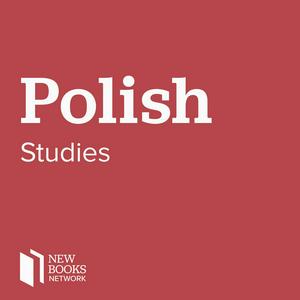Catching the China-Europe Express: Logistics, Local Agency & Eurasian Geopolitics in the Polish Borderlands
In this episode, we focus on the often-overlooked geographies of Eurasian connectivity with Dr. Wojciech Kębłowski, whose research brings attention to the Polish border towns of Małaszewicze and Narevka, key yet rarely discussed nodes in global infrastructure networks. As Eurasia undergoes a dramatic reconfiguration—with initiatives like China’s Belt and Road Initiative, the India-Middle East-Europe Corridor, and numerous regional projects vying for influence—we discuss what happens at the edges. How are logistics nodes developed? Who lives in these nodes of connection, and how do they navigate the shifting tides of global ambition?
Our conversation spans local politics, logistics, labor, railway connectivity, and geopolitics, offering a multidimensional view of border hubs where the global meets the local. These sites are not only shaped by supply chain logics but also by mounting geopolitical rivalries, as powers compete for infrastructural influence across continents. Dr. Kębłowski paints a vivid picture of Małaszewicze, once a booming railway town employing over 10,000 people, now economically depressed but still strategically vital. While geopolitical tensions—like the war in Ukraine—have disrupted trade flows, they haven’t derailed Małaszewicze’s importance. The town’s traffic has rebounded, a testament to its logistical centrality. Dr. Kębłowski discussed the hopes of renewal spurred by the BRI and how local leaders have actively tried to position Małaszewicze on the global map—courting Chinese delegations, lobbying Warsaw, and crafting narratives of international relevance. He shares insights into how these symbolic and practical efforts illustrate both the ambitions and the limitations faced by peripheries striving to assert their place in global politics and connectivity networks.
GUEST BIO:
Wojciech Kębłowski is an urban researcher, photographer, and Assistant Professor in Urban Studies and Planning at the Vrije Universiteit Brussel, with affiliations at the Université libre de Bruxelles. He will begin a new professorship at the University of Hong Kong (HKU) in June 2025. His research sits at the intersection of urban, transport, and political geography, and draws on critical social and decolonial theory. It spans three main areas: the political economy and governance of “sustainable” transport, the urban geography of Global China, and alternatives to capitalist urbanism, including circular economy and degrowth practices. Wojciech’s research is global in scope, with fieldwork and collaborations in diverse cities in Western Europe (Aubagne, Brussels, Luxembourg, Helsinki, Madrid), Eastern Europe (Sopot, Wrocław, Tallinn), China (Chengdu) and Cuba (Santiago). He uses a range of qualitative methods and is interested in photography as a research tool and a creative practice. Wojciech is involved in several international research projects, including LiFT (on fare-related mobility transitions), CARIN-PT (on flexible and on-demand transport), and previously led PUTSPACE and CIRCITY, focused on public transport and circular economies, respectively.
Learn more about your ad choices. Visit megaphone.fm/adchoices
